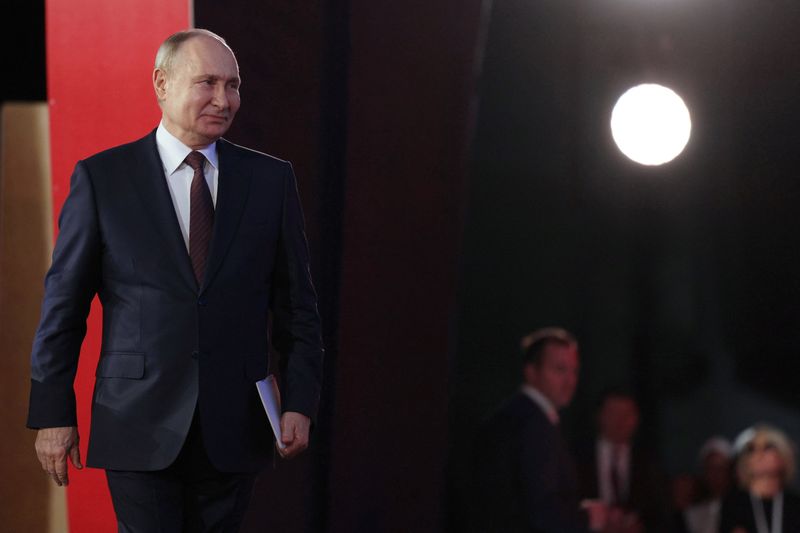(Reuters) - Russian President Vladimir Putin, running for a new six-year term in an election that his opponents say is a parody of democracy, said on Tuesday that past U.S. elections had been rigged by postal voting.
“In the United States, previous elections were falsified through postal voting … they bought ballots for $10, filled them out, and threw them into mailboxes without any supervision from observers, and that’s it,” Putin said, without providing evidence.



The voters decide what the electoral college chooses, though. I suppose it has been a sort of buffer against the dumbfuck citizens making dumbfuck choices. Donald Trump’s presidency of course has shown that if any such buffer ever existed, it sure doesn’t now.
The Republicans in general have shown that for a while now. The last times the Republicans won the popular vote was in 2004 (Bush, only during his second term and considered to have only won that because of his leaning on 9/11) and Regan in 1988. If it wasn’t for the electoral college, most likely the last 30 years would have only been Democrats as President.
https://www.statista.com/statistics/1035521/popular-votes-republican-democratic-parties-since-1828/
And this would have most likely been a great thing for the USA as Democrats ower the deficit and Republicans raise it.
Not to mention that the economy is also typically better when a Democrat is the president.
This might be explained by the latency that large economic decisions have. As a practical example, the leftist government in Finland increased expenditure by quite a lot in Finland during 2019-2023 (mostly due to Covid-19 and Russia, but also beyond that) leading to a much increased governmental deficit. As a result, the economy is doing poorly now, and since the Finns chose a rightist austerity government in 2023, it looks as if the economy was doing well under a leftist government, and poorly under a rightist government – even though the consequences for the current situation can clearly be derived from the previous government and there’s no way the current government has had enough time contribute to the situation.
As most US presidents serve for 8 years (most win both terms), then such a lag would be noticed within their time in office. Your answer only applies to a small time frame, not an 8 year time frame
I’m unfamiliar with the details of economics decisions in the US. How much does the president get to decide those things versus the House and Senate?
It’s not an all or nothing with the economy and the president, but they do have some sway in some ways. Easy examples would be Biden’s Build Back Better Plan can help change the American economy, and if he does get elected to a second term, it will show results then.
On the other side, Trump pushed the Tax Cuts and Jobs Act. This has caused the deficit to climb, and didn’t help spur any economic growth (in fact:
And many of the issues of this truly Act became an issue starting in 2021, which if Trump was in office, would have been reflected on his presidency. (It’s part of the issues Biden has been having with the economy).
Historically, it was implemented because in the 1800’s, a lot could happen between an election in, say, Wisconsin, and the time the electoral college member arrives in Washington DC.
The US being the oldest democracy might have a nice ring to it, but realistically it’s just means that there’s a lot of outdated baggage attached.
That would make sense, but that’s not the law. In most states, the electors can vote differently and it still counts, and in only some of those states is it even illegal for the elector to do that.